Saturday,September 9, 2023. Annette’s News Roundup.
I think the Roundup makes people feel not so alone.
To read an article excerpted in this Roundup, click on its blue title. Each “blue” article is hyperlinked so you can read the whole article.
Please feel free to share.
Invite at least one other person to subscribe today! buttondown.email/AnnettesNewsRoundup
_____________________________
Joe is always busy.
Senate confirms Biden’s FCC nominee, breaking years-long deadlock.

Anna M. Gomez.
The Senate on Thursday confirmed Anna Gomez, President Biden’s pick for the Federal Communications Commission, ending a lengthy partisan split at the regulatory agency and giving Democrats the power to carry out major agenda items.
Senators voted 55-43 to confirm Gomez, an FCC veteran who is a communications policy adviser for the State Department. Gomez will take the third Democratic seat on the five-member commission, which oversees broadband and communications regulation.
The move returns the agency to full strength for the first time under Biden, whose initial pick for the FCC role, Gigi Sohn, withdrew after a contentious 16-month confirmation battle. The impasse had left the agency without a Democratic majority for the entirety of Biden’s term until now.
Consumer advocates said the 2½-year delay hampered the FCC’s ability to carry out critical tasks aimed at protecting Americans from potential abuse by the telecom giants, including reinstating the Obama-era net neutrality regulations, which bar internet service providers from blocking or throttling content.
(Washington Post).
Hello, Delhi!
— President Biden (@POTUS) September 8, 2023
It's great to be in India for this year's G20. pic.twitter.com/JBJUAuAYYb
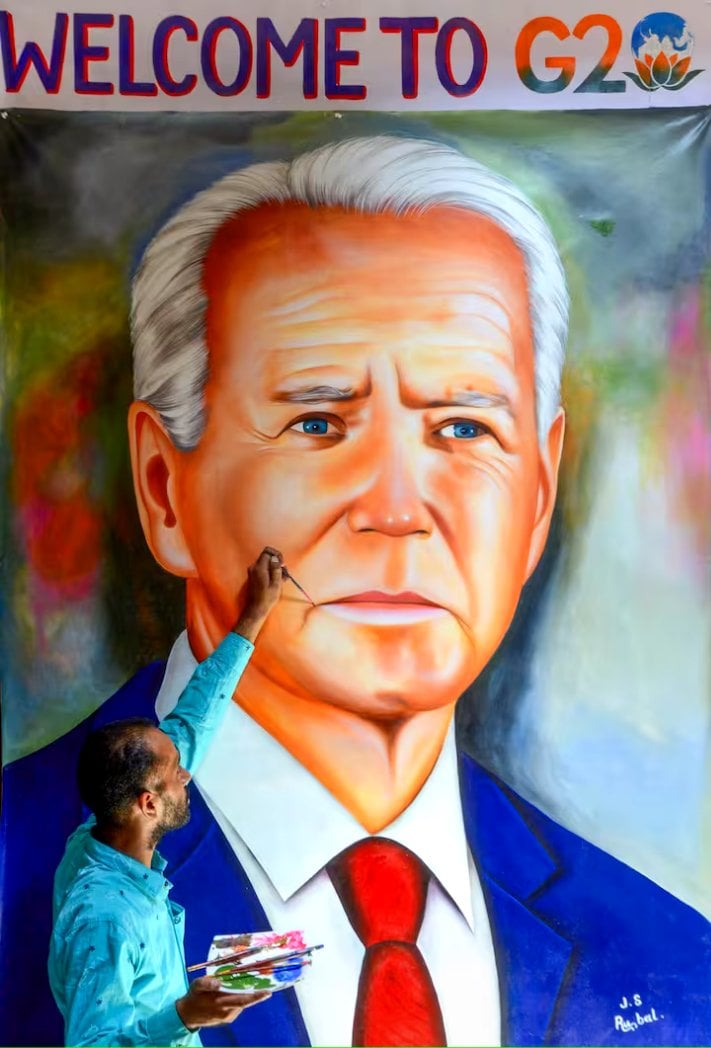
_____________________________
Kamala is always busy.
Vice President Kamala Harris to Celebrate Hip-Hop 50 With Common & More.
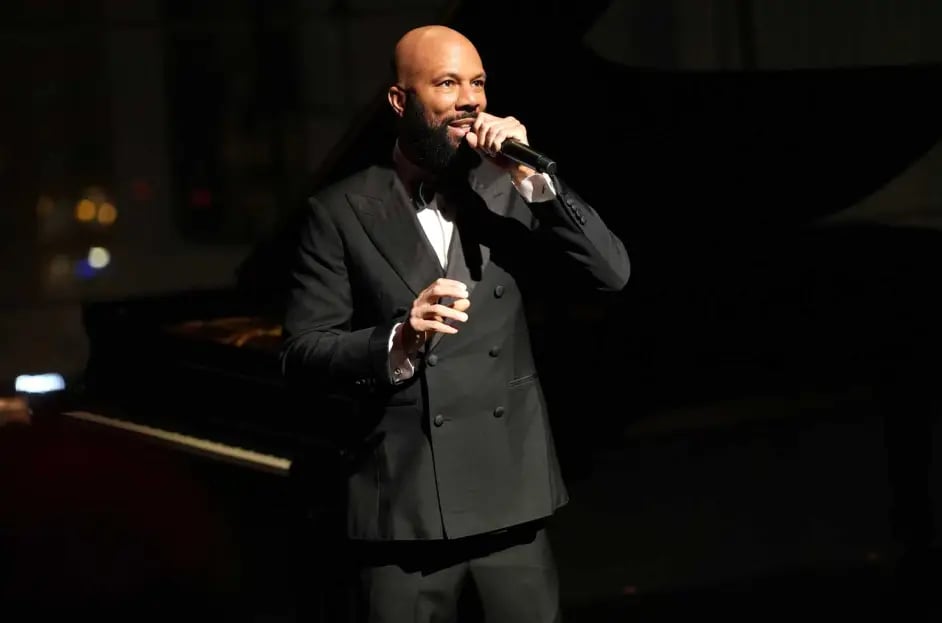
On Saturday (Sept. 9), Vice President of the United States Kamala Harris will have Common, Jeezy, MC Lyte, Roxanne Shante and more to celebrate at her home as a part of a Hip-Hop 50 celebration, honoring the genre and its impact on American culture.
Harris, along with The Recording Academy’s Black Music Collective and Live Nation, will highlight the importance of the genre by holding a commemoration with more than 400 guests in attendance at the Naval Observatory in Washington, D.C. Serving as the first event of its kind, this hip-hop event will look to reinforce the Biden-Harris Administration’s commitment to celebrating the arts.
“The Recording Academy and the Black Music Collective have had a tremendous year paying tribute to and honoring the legacy of hip-hop in its milestone 50th year,” said Harvey Mason Jr., CEO of the Recording Academy, in a statement. “Taking the celebration to our nation’s capital alongside Vice President Harris is truly something special and I look forward to a historic day.”
The White House paid homage to hip-hop during its Juneteenth event in June, where Method Man spoke at the inaugural concert. “This concert is a fitting way to recognize Juneteenth and express this part of our shared American history,” he said at the time. “For it is through music that African-Americans found community and sought solace. Music has the power to uplift us, to enrich our minds and nourish our souls.”
He added: “From spirituals to gospel, R&B, jazz, rock, soul, and yes y’all, 50 years of Hip Hop, ya heard?! Each generation of Black musicians, artists and thought leaders have channeled the struggles of their lifetime into the American soundtrack.”(Billboard).
_____________________________
The Co-Defendant List in Fulton County, Georgia District Attorney Fani Willis’s racketeering case against Trump and 18 others could have been even larger.
Fulton County special grand jury report reveals the jury also recommended charges against Lindsey Graham, Cleta Mitchell, and 2 former GOP Senators, David Perdue and Kelly Loeffler, as well as Michael Flynn and others in addition to the 19 individuals who were indicted.Interesting who was not charged.
Here is the full list of indictments requested by the Special Grand Jury in Fulton County, GA, including Donald Trump, Lindsey Graham, Rudy Giuliani and others.
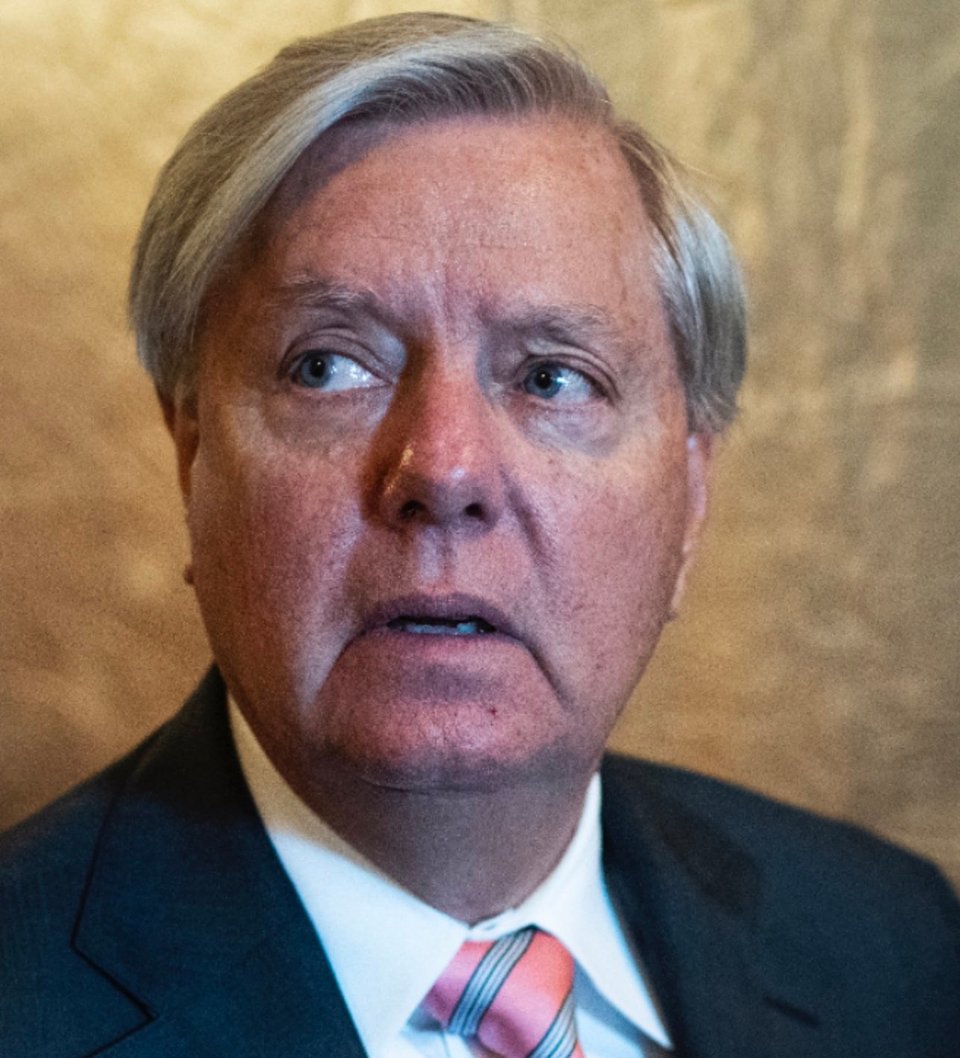
_____________________________
Mark Meadows lost round one.
Judge denies Mark Meadows effort to move Georgia case to federal court.
The ruling is a blow to Meadows’s efforts in federal court to dismiss his case and could influence former president Donald Trump as he decides whether to seek removal himself.

A federal judge denied a request Friday from former White House chief of staff Mark Meadows to move the Georgia election-interference case against him from state to federal court, a shift he had sought on the grounds that he was a federal officer at the time of the actions that led to his indictment.
The ruling by U.S. District Judge Steve C. Jones in the Atlanta-based Northern District of Georgia represents a setback for Meadows, who had asked for removal under a federal law that allows people charged with crimes while carrying out their official duties to be prosecuted in federal court, even in cases involving state law and state prosecutors.
Meadows had hoped a move to federal court could lead to a quick dismissal of the case against him because he had argued to Jones that as a federal officer, he is immune from prosecution for acts taken in the course of his normal work.
Instead, Jones found that the actions “at the heart of the State’s charges against Meadows were taken on behalf of the Trump campaign with the ultimate goal of affecting state election activities and procedures.”
He added: “Meadows himself testified that working for the Trump campaign would be outside the scope of a White House Chief of Staff.
” Meadows’s lawyers Friday evening quickly filed a notice to appeal the ruling. (Washington Post).
_____________________________
Good news from Missouri.
Support Lucas Kunce if you can. These early poll numbers make clear we can get rid of #RedMeatSenatorJoshHawley.
Josh Hawley is vulnerable. @LucasKunceMO will defeat him. https://t.co/EoEw54pgvh
— Aaron Parnas (@AaronParnas) September 7, 2023
_____________________________
If you have wanted to see Medhi Hassan’s interview with #RedMeatRupublicanVivekRamaswamy, here it is. 25 minutes.👇
Good morning. The two clips from my interview with Vivek Ramaswamy have had, between them, 17 million views on Twitter, including 4 million Twitter video views, in less than 48 hours.
— Mehdi Hasan (@mehdirhasan) September 8, 2023
Thanks for watching!
Here's my full 25-minute interview with him:https://t.co/n38ykovQWk
Sample question - Medhi: “what have you done that even qualifies you to be president of the United States?” Or “Is Trump the best president of the 21st century, or someone who did “downright abhorrent” things on January 6th?”
_____________________________
The Spanish fight for gender fairness and the right to dignity goes on.
Spain Player Files Criminal Complaint Over Soccer Chief’s Kiss.
Jennifer Hermoso has said the kiss from Luis Rubiales, head of the Spanish soccer federation, at the women’s World Cup was not consensual. The scandal has grown into a reckoning over sexism.

Jennifer Hermoso warming up before the Women’s World Cup final in Sydney last month. The kiss came in the wake of her team’s victory.
The Spanish soccer star Jennifer Hermoso has filed a sexual assault complaint against Luis Rubiales, the head of the country’s soccer federation, after he gave her an unsolicited kiss in the wake of her team’s World Cup victory in Australia last month, prosecutors said on Wednesday.
The criminal complaint by Ms. Hermoso clears the way for prosecutors to open a case against Mr. Rubiales, who has been the subject of enormous criticism ever since the kiss during a medal ceremony following Spain’s victory over England in the World Cup final on Aug. 20.
Prosecutors in Spain opened an initial investigation last Thursday into whether Mr. Rubiales could be charged with committing sexual assault and invited Ms. Hermoso, who had said that the kiss made her feel “vulnerable” and a “victim of an attack,” to formalize a complaint within 15 days. In Spain, sexual assault is a crime punishable with one to four years in prison.
“It was a necessary step to begin the judicial process,” said Mar Hedo, a spokeswoman for the prosecutor’s office. She said the first phase of the case would come in a few days.
There was no immediate comment from Mr. Rubiales.
Mr. Rubiales has defended his conduct and said that Ms. Hermoso had initiated the exchange, but she has maintained that she did not consent to the kiss. Mr. Rubiales has also resisted calls to resign from the Spanish soccer federation.
After initially offering an apology the day after World Cup final, he reversed course, and amid rumors that his resignation was imminent, he said that Ms. Hermoso had “moved me close to her body” during their encounter onstage. He accused his critics of targeting him for “social assassination” and declared that he would not step down.
The kiss provoked a widespread debate over sexism in sport, most notably in Spain, which is battling a deep-rooted, while declining, culture of machismo. Some commentators have described it as Spain’s #MeToo moment.
The fate of Mr. Rubiales, who has been suspended from all soccer-related activity for 90 days by FIFA, the sport’s world governing body, remains in the balance, but another prominent male figure in women’s soccer in Spain has already lost his job.
Jorge Vilda, the coach of the women’s national team, was fired by the Spanish soccer federation on Tuesday, after months of complaints from players who accused him of outdated methods and controlling behavior. (New York Times).
Bedtime Check-Ins and Verbal Abuse: Women’s Life in Spanish Soccer.

Members of the Spanish soccer team before the Women’s World Cup final in Sydney, Australia, last month.
More than a dozen women described sexism ranging from paternalism to verbal abuse. “What you really need is a good man,” a former national captain said players were told.
Last summer, when Beatriz Álvarez landed the job as president of the Spanish women’s soccer league, she asked to meet the chief of the country’s soccer federation by videoconference, she said, so she could remain home with her newborn child.
After decades of being an inconsistently run afterthought, women’s soccer had recently become fully unionized and professional. Ms. Álvarez had much to discuss.
But Luis Rubiales, the now-embattled president of the soccer federation, refused, Ms. Álvarez recalled in an interview. He told her to send someone else. She said he told her that, rather than attending a meeting, she should set an example by “devoting myself to my maternity.”
Ms. Álvarez said the meetings went on without her. She said the incident was just one of many subtle and not-so-subtle reminders over the years that, in the eyes of Spain’s top soccer official, women should know their place.
This power imbalance burst into public view after Spain won the World Cup last month and Mr. Rubiales forcibly kissed the star player, Jenni Hermoso, on live television. On Wednesday, Ms. Hermoso filed a criminal complaintwith state prosecutors, advancing an inquiry into whether the kiss was an act of sexual aggression.
The kiss unleashed widespread backlash and provoked a reckoning in women’s soccer in the country. On Tuesday, Spain fired its women’s national coach, Jorge Vilda, whom players had separately criticized for his domineering, even humiliating management style. Replacing him is Montse Tomé, 41, the first woman to hold that position in Spain.
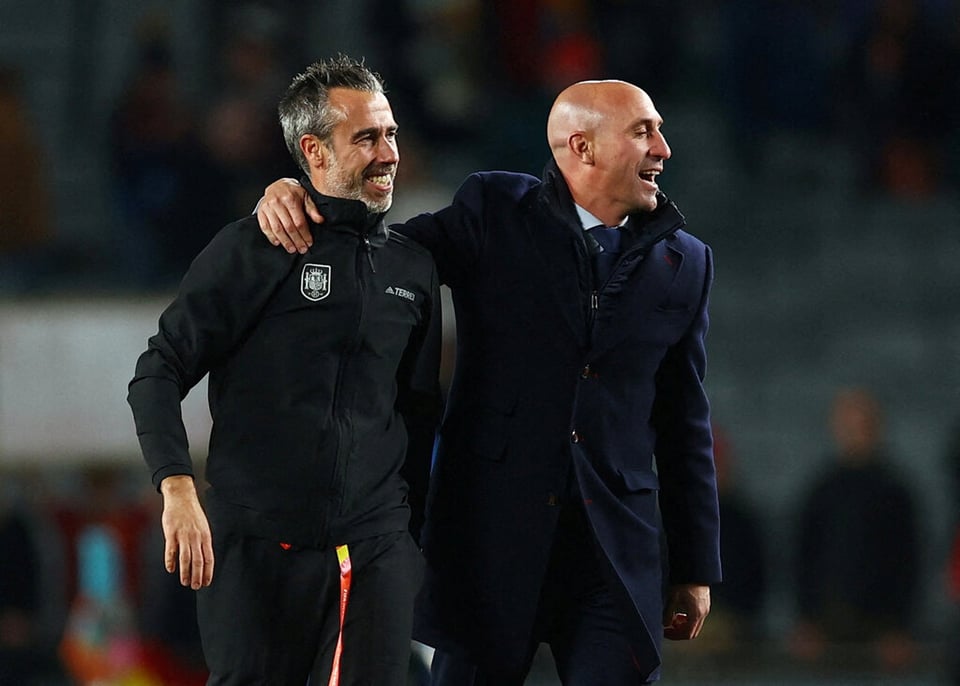
Jorge Vilda, Spain’s recently fired national coach, left, and Luis Rubiales, president of the Spanish Soccer Federation, at the Women’s World Cup in Auckland, New Zealand, last month.
In interviews with The New York Times, more than a dozen women involved in Spanish soccer described more than a decade of systemic sexism ranging from paternalism and offhand remarks to verbal abuse. Women said they got bedtime checks and were ordered to leave their hotel doors ajar at night. One high-ranking official quit after concluding that her hiring was just window dressing. And Veronica Boquete, a former national team captain, recalled that Mr. Vilda’s predecessor, Ignacio Quereda, told players, “What you really need is a good man and a big penis.”
Mr. Quereda has denied being verbally abusive.
With his kiss and his defiance in the face of suspension and public recrimination, Mr. Rubiales is the face of that system. Ms. Álvarez called him an “egocentric chauvinist” who never cared about the women’s league and ran the sport “based on belittlement and humiliation.”
Mr. Rubiales did not respond to an interview request, and his soccer federation declined to answer questions from The New York Times or even forward them to Mr. Rubiales, citing his suspension by FIFA, soccer’s world governing body. He has described himself as a victim of “false feminism.”
While players say they will boycott the national team unless Mr. Rubiales is gone, they also say that his departure would not be enough. The issues in Spanish soccer predate his arrival and require major changes to address, they say. Dozens of current and former players have signed a statement demanding management changes. They air their grievances and strategize in a WhatsApp group called Se Acabó, Spanish for “It’s Over.”
Players want higher wages, contracts that continue during maternity leave and access to the same nutritionists and physical therapists as men. And they are discussing a potential strike to get them. Union officials say that the minimum wage for women is 16,000 euros (a little over $17,000), compared with 180,000 euros, over $193,000, for their male counterparts.
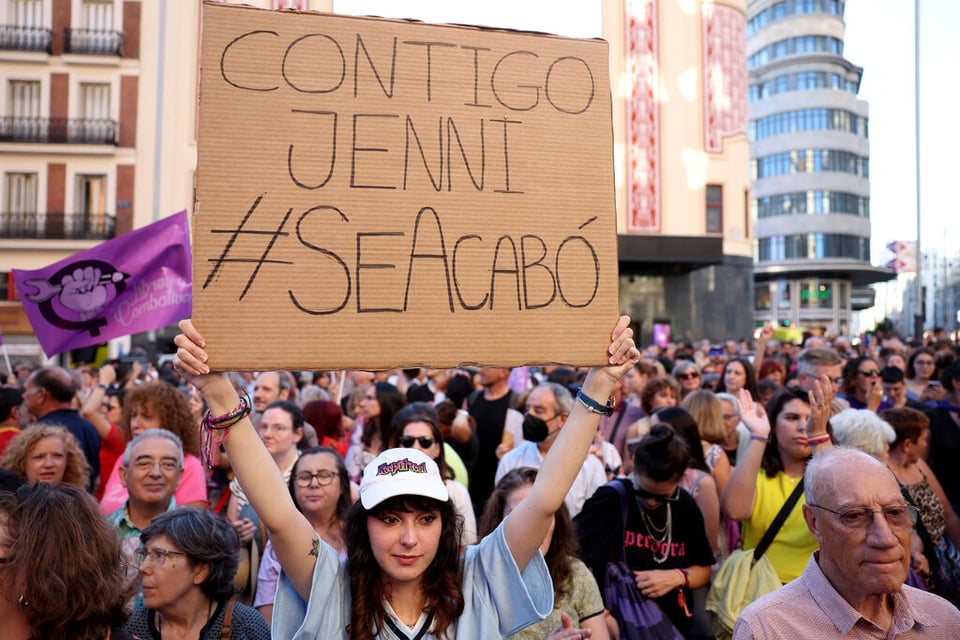
A protest against Mr. Rubiales and his treatment of Jennifer Hermoso at the World Cup final in Madrid last month. The sign reads, “With you, Jenni. It’s over.
Ana Muñoz, the soccer federation’s former vice president for integrity, said that instead of prize money at the end of a competition she witnessed, players received tablets. “I have daughters,” she recalled Mr. Rubiales remarking. “I know what women would want.”
Ms. Muñoz, who resigned in 2019 after a year on the job, recounted for the first time the reasons for her departure. “I was just there for decoration,” she said. “A flower pot.” She said she questioned the ethics of several of Mr. Rubiales’s decisions, including a $43 million deal to move a soccer competition to Saudi Arabia. That move is under investigation, along with public allegations by his former chief of staff and others that Mr. Rubiales used federation money to host a sex party at a coastal villa in the south of Spain. (Mr. Rubiales has previously denied any wrongdoing in either case.)
Fifteen of the federation’s 18 board members were men, Ms. Muñoz recalled. When she called for the temporary removal of a member pending a criminal investigation into whether he had spent federation funds on home renovations and his wife’s business, she said she was swiftly voted down. She said she had no authority. “I couldn’t understand that a department of integrity didn’t deal with integrity issues,” she said.
Players tried and failed to force change last year over the behavior of Mr. Vilda, the now-fired national coach.
Ms. Boquete recalled that on the national team from 2015 to 2017, when she was captain and Mr. Vilda was coach, he insisted that, when women gathered for coffee, they do so where he could see them. She said he wanted to monitor their body language, whom they were meeting and whether they were complaining about him. Team captains were told where to sit at meals, she said, so he could maintain eye contact with them.
Mr. Vilda also required players to keep their doors open at night until he could check that each of them was in bed. “If you go into the other rooms, maybe you’ll talk about him,” Ms. Boquete said. “He wanted to control everything.”
It’s unclear whether that continued for the most recent national team. The players have declined to speak publicly amid the controversy. People close to the players said the women feared retribution. And in the few cases in which agents said their clients did want to talk, the clubs shut them down.
Fifteen players ultimately banded together and refused to play under Mr. Vilda. Mr. Rubiales refused to fire him, and the federation responded by requiring that the players apologize for their actions before considering whether to allow them to return to the team.
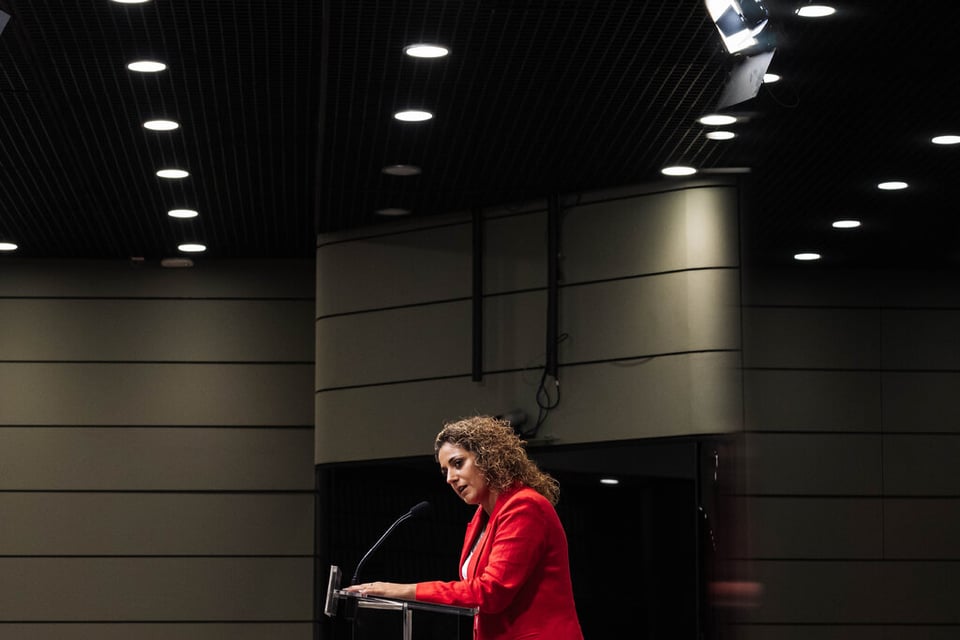
Beatriz Álvarez, president of the Spanish women’s soccer league, said that Mr. Rubiales told her to set an example by devoting herself to her maternity.
Some players were particularly angry last month, after the World Cup victory and the controversy over the kiss, when Mr. Rubiales not only refused to step down and apologize but also announced that he planned to renew Mr. Vilda’s contract and give him a raise. That plan came to a halt this week with Mr. Vilda’s termination, but Mr. Rubiales is clinging to his job. Though the federation has not fired him, it called his behavior at the World Cup “totally unacceptable.”
Mr. Rubiales resisted the idea of professional women’s soccer from the beginning, records obtained by The Times show. In 2020, during discussions about creating a unionized, official women’s soccer league, the national federation under Mr. Rubiales opposed the idea, according to a document from Spain’s National Sports Council.
Mr. Rubiales questioned whether clubs could afford the upgrade, recalled María José López, the top lawyer for Spain’s chief players’ union, who was involved in the discussions. But she suspected Mr. Rubiales really did not want to cede power to the women’s teams. “In particular, he didn’t want the clubs to negotiate TV broadcasting rights,” Ms. López said.
Generations of female athletes have endured demeaning comments.
When an unofficial Barcelona women’s team played its inaugural match on Christmas in 1970, the public announcer kept asking, “Has her bra broken?” as players ran the field, team members have recalled.
The following year, José Luis Pérez-Paya, then the president of Spain’s soccer federation, said: “I’m not against women’s football, but I don’t like it, either. I don’t think it’s feminine from an aesthetic point of view. Women are not favored wearing shirts and shorts.”
Dozens of current and former players have signed a statement demanding management changes.
Decades later, Mr. Rubiales cracked a similar joke on live television. Monica Marchante, a Spanish sports commentator, recalled being on air with him as players wore T-shirts and shorts after practice. “They’re in their underwear,” he joked. In an interview, Ms. Marchante said she smiled politely but realized then that Mr. Rubiales was “old-fashioned and rancid.”
Ms. Álvarez, the league president, said the soccer federation also tried to sabotage the opening of the 2022-23 women’s season by helping to orchestrate a referee strike that postponed the opening weekend. The federation, she said, is a “corrupt structure.”
In January, when the Barcelona club team won the Women’s Super Cup, an important Spanish competition, Mr. Rubiales and other top federation officials skipped the medal ceremony. Players had to collect their medals from containers.
Spain is far from alone in its treatment of female players. In 2004, FIFA’s president at the time, Sepp Blatter, suggested that women could enhance their sport by wearing tighter shorts. During a 2015 interview in Zurich, he repeatedly petted a Times reporter’s hair.
European powers like England and Germany barred women from playing for years until 1970.
“The Spaniards are not outliers,” said Andrei Markovits, a University of Michigan politics professor and the author of “Women in American Soccer and European Football.” “They are totally the norm.”
Spain’s professional women’s soccer season kicks off this weekend. But on Wednesday, the attention was on an office in downtown Madrid, where league and union representatives were meeting to discuss salaries and working conditions. Union leaders say that, if no agreement is reached, a strike is possible that could delay the season.
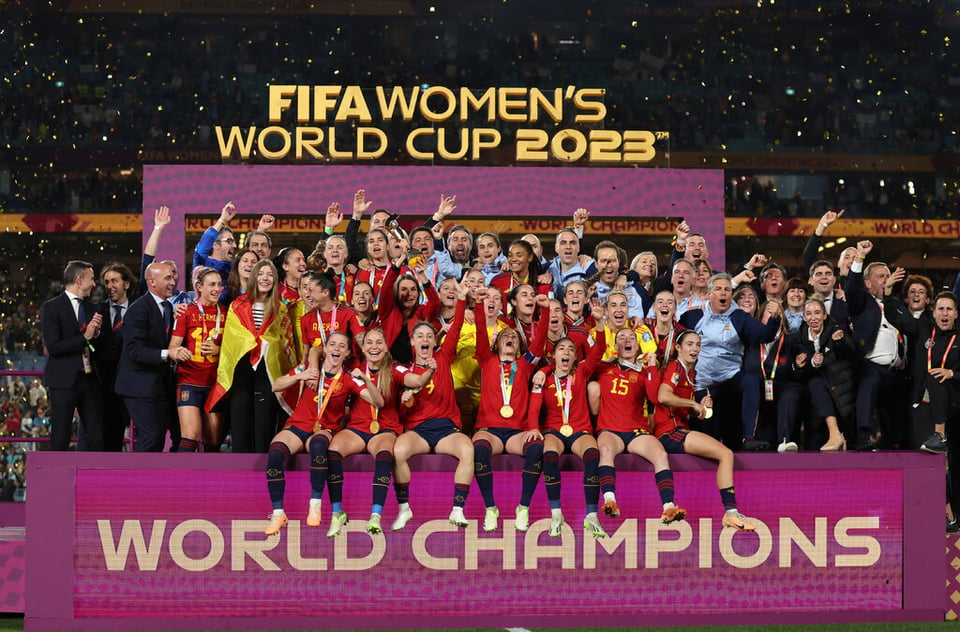
(New York Times).
One more thing.
Female soccer players in Spain are going on strike as the club season begins, representatives from several players’ unions confirmed on Thursday, as a dispute over conduct by the head of the country’s soccer federation widened into a fight with the soccer clubs over pay.
The current minimum salary for female players in the country is 16,000 euros, or about $17,000, compared with 180,000 euros, or about $192,000, for their male counterparts, according to Spain’s chief player union, A.F.E. The players asked for a minimum salary of 23,000 euros for the upcoming season, with the possibility for that salary to increase to 25,000 euros if the league generates more than 8 million euros in sponsor income. But the negotiations came to a halt when the women’s league refused to approve a minimum salary of more than 20,000 euros.
_____________________________
We recently learned what Elon Musk did to support Putin, using Starlink which he owns.

The New York Times-
Elon Musk foiled an attack on Russia’s Black Sea fleet last year by refusing to let Ukraine use his satellite network to guide its drones, Mr. Musk has acknowledged, provoking a furious response from a top official in Kyiv and renewing questions about the global power wielded by a multibillionaire businessman.
News that Mr. Musk did not allow the use of his Starlink satellite network highlights concerns in Kyiv and Washington about his outsize influence in the war.
_____________________________
MSNBC adds Jen Psaki to Monday primetime lineup.
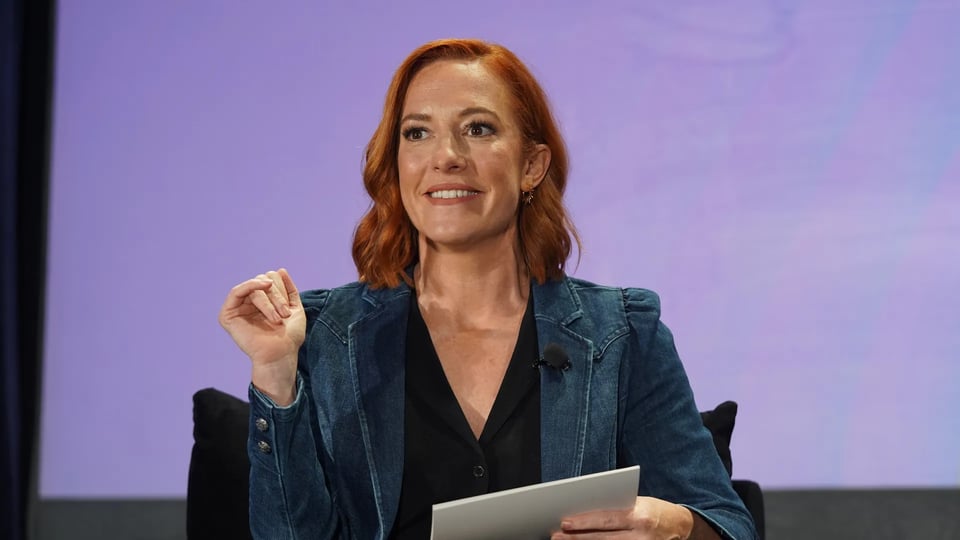
Former White House spokesperson Jen Psaki will host an hour of prime-time programming at 8pm on Monday evenings for MSNBC, beginning Sept. 25, the network announced today.
Why it matters: The network has leaned into partisan personalities to drive ratings in the post-Trump era.
Psaki joined MSNBC last October after leaving the White House. She launched her own show, "Inside With Jen Psaki," earlier this year. The show, which airs on Sundays at noon, has been a ratings success for the network.
MSNBC hired Symone Sanders, a former adviser and senior spokesperson for Vice President Kamala Harris, in January 2022. She began hosting a weekend show for the network earlier this year.
Details: Psaki will continue to host her show on Sundays, as well as appearing on other shows as a contributor.
MSNBC host Chris Hayes will continue to host his show, "All In With Chris Hayes," during the 8pm hour Tuesdays through Fridays, the network said in a statement.
The big picture: MSNBC is continuing to experiment with scheduling shifts to accommodate multiplatform projects from its biggest stars and to boost ratings.
Rachel Maddow, for example, began hosting her 9pm show only on Monday evenings last year. She signed a new contract with the network in 2021 to focus more on things like documentaries and podcasts.
The network has been experimenting with a similar model for "All In With Chris Hayes" by having a group of rotating hosts anchor the 8pm hour on Mondays for the past year.
Go deeper: Trump indictments boost MSNBC prime-time ratings (Axios).
_____________________________
White House Press Secretary Karine Jean-Pierre Has Made History—And Waves | Vogue.

In June 2019, Karine Jean-Pierre was moderating a forum for presidential candidates when a protester rushed the stage. It’s a famous video: Finding herself seated between the oncoming protester and then senator Kamala Harris, Jean-Pierre leapt to her feet, raised a hand, and turned her body to face him—a five-foot-two one-woman blockade to the future vice president of the United States. On Morning Joe later that week, cohost Willie Geist marveled at her courage: “I know who I want moderating my next panel.”
At the time, Jean-Pierre, who had worked in the Obama administration, was the chief public affairs officer for MoveOn.org and a political pundit. Her next moves would be swift: In 2020 she joined the Biden campaign as a senior adviser and later became Harris’s chief of staff. About a year and a half into the Biden presidency, she was introduced as the White House press secretary—the first Black person and first openly gay person to hold the position.
In June 2019, Karine Jean-Pierre was moderating a forum for presidential candidates when a protester rushed the stage. It’s a famous video: Finding herself seated between the oncoming protester and then senator Kamala Harris, Jean-Pierre leapt to her feet, raised a hand, and turned her body to face him—a five-foot-two one-woman blockade to the future vice president of the United States. On Morning Joe later that week, cohost Willie Geist marveled at her courage: “I know who I want moderating my next panel.”
In one example, when House Republicans earlier this year prepared to block the president’s plan on student-debt relief, Jean-Pierre, 49—who has been open about the debt she accrued in graduate school (some $25,000, despite a partial scholarship)—kept her feelings in check. “Will Marjorie Taylor Greene, who had $183,000 of her own business loans forgiven, vote to deny debt relief to the 92,000 student borrowers she represents?” Jean-Pierre wondered aloud. “Will Representative Vern Buchanan, who had over $2.3 million of business loans forgiven, vote to deny student debt relief for 95,000 of his own constituents?”
President Biden has emphasized to Jean-Pierre that when she speaks, her audience is as much the American people as it is the press corps, and so that afternoon she went on: “To the more than 40 million eligible student borrowers who are eagerly waiting to learn about the fate of their debt relief, I urge you to tune in to today’s vote to watch which Republican lawmakers shamelessly vote against debt relief for you—after having their own loans forgiven.”
Jean-Pierre never planned to work in politics. Born in Martinique to Haitian parents, she moved with her mother and father to Paris as a baby, and then to New York, where relatives had settled in Queens Village. Later, they landed in Long Island. Her sister, Edrine, was born when she was seven. Her brother, Chris, arrived not long after. (Her parents also had a son named Donald, who died before Jean-Pierre was born.) Jean-Pierre couldn’t read until the third grade. Her parents—consumed with multiple jobs—had assumed she would learn in school. She did not.
Determined to help her siblings avoid the same fate, Jean-Pierre set up a classroom in the basement when she was in middle school. Her brother remembers her teaching him not just how to read and write, but “how to articulate emotions, how to speak.” When her sister took dance classes, Jean-Pierre handled drop-off and pickup. It was about this time that her parents started handing her bills to decipher. “I was like the third parent,” she says. “I had big responsibilities.”
But fulfilling those obligations meant learning to compartmentalize. In her memoir, Moving Forward: A Story of Hope, Hard Work, and the Promise of America, Jean-Pierre writes of silence as a tool of survival. She records instances of childhood sexual abuse at the hands of a cousin. She didn’t tell her parents. (A relative noticed how she flinched when the cousin walked in the room, and put a stop to it.) She describes a suicide attempt in college: Her sister found her in her car with the exhaust on and shook her awake. Jean-Pierre threw her urine-soaked khakis in the trash and never discussed the incident—or what drove her to it—with her parents. She had known she was gay since childhood, but the book recounts only one agonizing attempt at coming out to her mother. (“I could see the revulsion on her face,” Jean-Pierre writes.) Decades would pass before she and Jean-Pierre discussed it again.
Track proved the perfect sport for someone looking to outrun her reality. In high school, Jean-Pierre joined the team. She became a standout cross-country runner, too, breaking records on Long Island. Her vegetarianism baffled her meat-eating parents and she briefly considered becoming a nun, the better to evade any question of romantic attraction. After graduation, she enrolled in the New York Institute of Technology—a private university on Long Island—and loaded up with pre-med classes. She trained as a volunteer firefighter, an experience that would prove useful in her eventual career in rapid response.
But her MCAT scores were terrible and it was clear that medical school was not in her future. She was still living with her parents, with no idea of what she would do next. Washington brims with driven, sometimes Machiavellian strivers. Jean-Pierre spent the first half of her 20s taking temp jobs. She worked for a spell at Estée Lauder. She took a gig in conservation, protecting the nests of piping plovers. In 2001 she enrolled at the School of International and Public Affairs at Columbia University, thinking she might pursue environmental studies. The week she began classes, the Twin Towers fell.
Jean-Pierre studied under the urban policy expert Ester Fuchs, PhD, whose class told a narrative of American progress. “The view essentially was, ‘Okay, our institutions work,’ ” Fuchs says. Jean-Pierre—one of two Black women in the course—wasn’t so sure. “She asked the hard questions,” Fuchs says. “Her concern was always for what we call the promise of America. She believed in it, but she saw where it wasn’t working.”
Jean-Pierre came to understand politics as a remedy. After graduation, she worked for New York City Council members. In 2007 she headed for North Carolina to work for presidential candidate John Edwards and met Jen O’Malley Dillon, his deputy campaign manager. When Edwards’s run imploded, O’Malley Dillon moved to Barack Obama’s staff and offered Jean-Pierre a job.
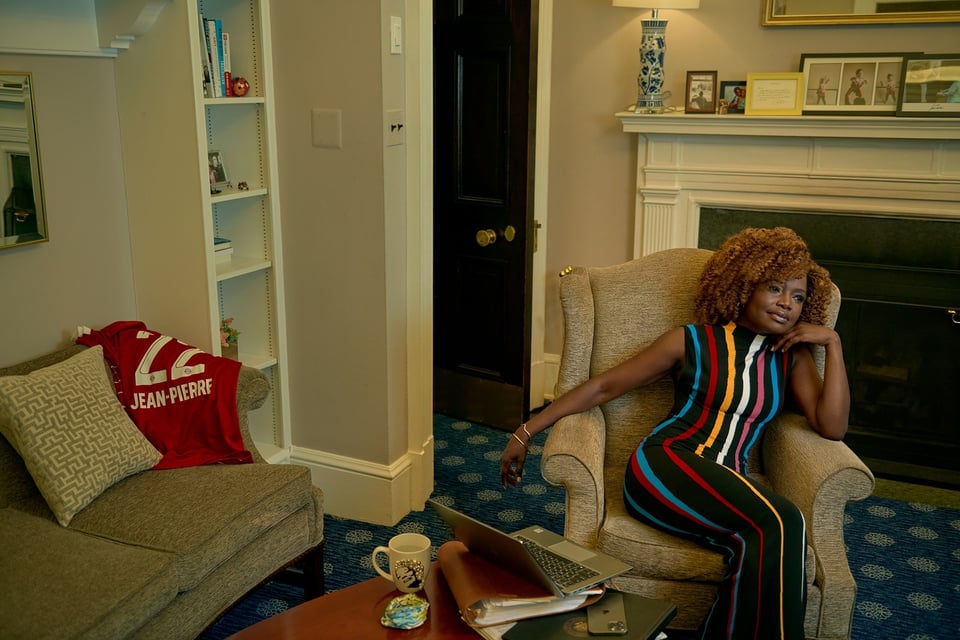
“Karine and I grew up together in the business,” says O’Malley Dillon, now President Biden’s deputy chief of staff. “It makes me sound like the oldest lady in the world, but when we were first starting out, there weren’t as many women leaders and there certainly weren’t women of color at the level that Karine is at now.”
Valerie Jarrett, President Obama’s longtime adviser and now CEO of his foundation, has known Jean-Pierre nearly as long. “I think she’s prepared her entire career for the moment she’s in right now,” she says.
These days, Jean-Pierre wakes up around 5 a.m. Her emails to me have pre-sunrise timestamps. “I’m not disciplined at all,” Jean-Pierre says. About balance, she means. She’s quite disciplined about work, from which she allows few distractions.
Jean-Pierre does not watch television. When she reads books, it’s bedtime stories. (Jean-Pierre shares her daughter, Soleil, with former CNN national correspondent Suzanne Malveaux. It was Malveaux who initiated the adoption process, not long after she and Jean-Pierre started dating. Now Soleil is nine, and Jean-Pierre’s mother has become a doting, obsessive grandparent.) Jean-Pierre does like musicals, and she and Soleil have taken in The Lion King, Wicked, and Once Upon a One More Time. She still runs when she can, and after three miles, her mind starts to clear.
Acknowledging that a nanny helps make the breakneck schedule possible, Jean-Pierre tells me she pulls into the White House at 7 a.m. Her first in person meeting is at 8:15 a.m., which Jeff Zients, White House chief of staff, hosts in his office. Jean-Pierre sits to one side. And when she speaks, he swivels. “While she’s humble, she’s got confidence in views that might sometimes run against where the team is heading,” he says. “I always pause because she’s probably onto something.”
A little after 9 a.m., Jean-Pierre settles behind her semicircular desk in the West Wing. Soleil is responsible for much of her office decor: a framed letter (“You are the best mom in the world”), a pink wood-block animal figurine (of indeterminate genus), and a doodle near two framed photos—one of Jean-Pierre with President Biden and Dr. Jill Biden, and one of her with President Obama.
From her perch, Jean-Pierre can see four TV screens broadcasting news networks. More shelves hold stacks of books, from bestsellers like Angela Duckworth’s Grit and Adam Grant’s Originals to Horse Barbie, Geena Rocero’s memoir of growing up as a trans pageant queen in the Philippines. Rocero inscribed it to Jean-Pierre during a visit to the White House.
There are memes about eldest sisters, and then there are the women who live them. Jean-Pierre is so organized her pens have their own coral pouch. A thin film keeps her Dell monitor pristine. Visible disorder in her office is limited to drooping flowers on a side table. Today, she’s wearing a vibrant orange sleeveless shift, with a rose gold Garmin watch strapped to her wrist. When I arrive, staffers have already started to filter in and out of her office in an exercise her team calls “prep,” but which is better characterized as a mix of college office hours and Talmudic exegesis.
Together with aides, Jean-Pierre takes stock of the latest economic signals, the status of the Presidential Commission on the Supreme Court, and reports of extreme heat across the country—all with an eye toward fielding questions later that day. Some in the press corps have complained that Jean-Pierre reads too much from her binder—that she sounds rehearsed. That is because she rehearses. In prep, she chooses adjectives and verbs with fastidious care. Is defend the right word to describe Florida governor Ron DeSantis’s stance on education standards that seem to celebrate the skills that enslaved people learned in bondage? Or perhaps it’s more accurate—and more pointed—to put it like this: It demonstrates a lack of leadership. It’s an insult.
The team has drafted a statement on the issue, if Jean-Pierre is open to it. Like all updates to her binder, it is printed and hole-punched. (She dreams of a briefing iPad.) No office in America relies on hole punchers like this one does. In the event of a national confetti shortage, White House hole punchers can be requisitioned to release strategic reserves.
Can Jean-Pierre comment on Governor DeSantis from the podium? He is a candidate for president, so she has to be careful. A few months ago, Jean-Pierre was slapped with a Hatch Act violation for comments she made about “MAGA Republicans,” which the Office of Special Counsel, a government watchdog agency, said ran afoul of the federal ban on executive branch employees participating in campaign activity. So, she’s wary. But DeSantis is also an elected official.
In the end, Jean-Pierre criticizes “extreme officials in Florida and across the country” who are “shamefully promoting a lie that enslaved people actually benefited from slavery. It’s inaccurate, insulting. It’s hurtful and prevents an honest account of our nation’s history.”
ABC News picks up her statement—600 retweets, 2,500 likes, a quarter of a million views.
Before her current job, Jean-Pierre had been principal deputy to Jen Psaki—Biden’s first White House press secretary. The two were so close that Psaki got them matching leather briefing books, which Jean-Pierre christened “Ebony” and “Ivory.” Several times, Jean-Pierre filled in for Psaki at the podium or on overseas trips. “I gaggled more than Jen did,” Jean-Pierre says, referring to the informal, off-camera briefings the White House often holds on the road.
Still, there was no actual interview process in the lead-up to her promotion. News had already leaked that Psaki would leave for an anchor position at MSNBC, prompting speculation about a successor; Jean-Pierre was the obvious front-runner, and after a month, Biden called her into the Oval Office.
“It happened fast,” Jean-Pierre says. “The president and I had 20 seconds together.”
“I remember she described her feeling as shell-shocked,” Psaki says. “It’s a little bit of an out-of-body experience when the president of the United States asks you to do something.”
“You’re kind of like, ‘Were there supposed to be fireworks happening? Mood music?’ ” Jean-Pierre says now. “There was none of that.” The press release came out a few minutes later.
When Psaki eventually relinquished her office to Jean-Pierre, she left a note quoting a bit of advice she’d gotten from her own mother: “Keep your feet planted on the ground and your spine stiff.” She meant that this is not a job for anyone made of squishy stuff. “There’s a reason that press secretaries over the years have handed down a physical flak jacket,” says Ben LaBolt, White House communications director. “You tend to get a lot more criticism than you do praise.”
Jean-Pierre did get a lot of criticism, especially in the beginning. There were reportedly complaints from the press corps, who sniped about Jean-Pierre’s recitation of talking points and expressed genuine exasperation about her perceived stonewalling on basic questions. Things became particularly testy in early 2023 when Jean-Pierre was pressed on a cache of classified documents found at Biden’s Delaware home. She seemed to share incomplete information from the podium—so much so that NPR reporter Tamara Keith, who was then president of the White House Correspondents’ Association, questioned Jean-Pierre’s ability to do her job. “Are you upset that you came out to this podium…with incomplete and inaccurate information?” Keith asked. “And are you concerned that it affects your credibility up here?”
One media reporter who has covered Jean-Pierre’s tenure tells me that Democratic officials have been critical too. The public needs to understand what the administration has accomplished, the reporter points out, “and if you don’t have someone who’s really able to sell your message, that hurts the White House.”
The alternate view is that Jean-Pierre can only say as much as the White House counsel allows her to. “I take none of it personally,” is all Jean-Pierre will tell me, when I ask her about the attacks on her credibility. “I’m representing the president, so petty is just not on the menu.” She adds (and reporters I speak to confirm) that she has developed good personal relationships with many correspondents—even those with whom she has “intense back-and-forths,” as she puts it.
Fuchs—still a mentor—has noticed improvements in the year she’s been doing the job. “Her press conferences now are very different than they were when she started,” Fuchs says. “She’s figured out how to carry herself.”
Best of luck to would-be blackmailers: Jean-Pierre doesn’t drink coffee or alcohol. Psaki calls her viceless. Her snack is roasted seaweed or a morning banana smoothie made al-desko with a gadget called the BlendJet.
Before the briefing starts, she allows herself a matcha bubble tea and then rustles up a faded Beautyblender to touch up her makeup. When she hears a two-minute warning, she pops a mint, takes her watch off, and puts her heels on.
Briefings last about 45 minutes. This one includes queries about protests in Israel and a few about GOP maneuvers at the border. Afterward, Jean-Pierre and her staff have a 10-minute postmortem. Today, an aide reminds her to be firm on questions that deal with prospective interest rate hikes. She wants the team to feel comfortable critiquing her. “But also, I know if I’ve screwed up,” she says. “No one has to tell me.”
In fact, when she feels she has truly slipped, she is in the habit of processing aloud. Zients has come to expect a pop-in. “She’ll show up to share good news, which is fun, but also when things don’t feel quite right,” he says. “She’s open to new ideas, to feedback. You’ll see a bunch of people here who think, ‘You know what? I’m under such tremendous pressure. I’m working so hard. Why don’t you go try to do that?’ If she has that instinct, it never comes out.”
Jean-Pierre endures fairly ruthless, sometimes frightening treatment on social media—the part of the job that Psaki tells me “crosses the line.” Still, Jean-Pierre says she has never had a “nasty” encounter in public. “People who love me are concerned,” she admits. “But I do not walk around fearful for my life or my security. That is not something I worry about. I worry more for my daughter.”
The afternoon that I visit, Jean-Pierre leaves work earlier than usual to take Soleil to a local pool. It’s clear that this is all a juggle, and it has gotten more challenging lately. Jean-Pierre and Malveaux have separated. “I’m a single mom who is co-parenting this amazing kid,” Jean-Pierre says. “Our number-one priority is her privacy and to make sure we create an environment that’s nurturing.”
She and I drive through leafy suburbs and arrive in the still humid evening, as Jean-Pierre continues the conversation poolside. She nods toward Soleil, who is splashing in a sequined bathing suit. “We talk about her feelings all the time,” she says. “I ask her all the time, ‘Are you happy? How’s it going?’ And she’ll tell me.” Open communication is something Jean-Pierre is committed to. “That’s the nice part—being the parent that you wish you had,” she says. “My parents were amazing, but they were trying to survive.”
She never expected to be in this situation—mothering. Having a child was “a thousand percent” not on her to-do list. She spent so much of her own childhood helping to raise her siblings. Her work was a bid for freedom. “I think that’s one of the reasons I left to do campaigns,” Jean-Pierre says. “Because it took me away from the responsibilities of home.”
But it turns out being a parent has only made her more motivated. “Everything that we do, being led by the president, is going to matter, not just today, but tomorrow and for the rest of our lives,” she says. “What we do is certainly going to change the trajectory of her life.”

Recently, a cabinet member texted Jean-Pierre. (She declines to say which.) This official had been getting pilloried in the press, and Jean-Pierre had offered a strong defense from the podium. “They reached out to me and thanked me,” she says. “I was like, ‘That’s nice. You’re welcome.’ ”
Who does that for her? Her team, she says. She has champions outside the White House too. When a group of Black women came to see Harris not long ago, one of them sought out Jean-Pierre to say that “there are millions of us who want you to succeed.”
There are of course also millions who do not.
The week I visit, Fox News is obsessively covering a change in Jean-Pierre’s word choice regarding whether or not President Biden was involved with his son Hunter’s business dealings. Where once the line was that Biden had “never spoken” about foreign deals with Hunter, Jean-Pierre now tells reporters Hunter and his father were never “in business” together. Other reporters (like The New York Times’ Peter Baker) note the shift as well.
Jean-Pierre reminds me that she’s not speaking for herself at the podium. That’s as true when questions about Hunter arise as it is when she has to respond to geopolitical human rights issues that target LGBTQ+ communities. She cites Haiti’s descent into political chaos as an example of where she must hold her feelings back. It’s “one of the issues that’s toughest for me,” she says.
She knows that what she represents is part of why Biden chose her for this role. But letting her own opinions slip into the record “is not what I signed up for,” she says. “I signed up to speak on behalf of this president. That’s why he selected me.”
First lady Jill Biden can attest to that. “From our first meeting with Karine, we knew we wanted her on the team,” she says in a statement. “As a pioneering White House press secretary, she brings grace, integrity, and insight to the podium. With her calm, quiet confidence, Karine inspires us all.”
The film director Gina Prince-Bythewood, who met Jean-Pierre at an event honoring Black women across industries earlier this year, says she too is struck by Jean-Pierre’s grace: “When you’re the first, you need to do well for yourself, but you also have to do well for all those who want to come up after you. If you mess up, people judge a whole community based on your actions.”
Jean-Pierre gets at the same idea, obliquely. We’re talking about the criticism that has dogged Harris—whispers about staff turnover, a bedeviling policy portfolio. “It’s hard to be the first,” she says of her former boss. “There is always going to be criticism. You’re always going to be under a bigger microscope.”
“Men can get away with all kinds of personalities doing this job,” Fuchs tells me. “Most of them are crude and rude. Karine had to develop something different. And she did. She developed this steely personality with a big smile, and that’s her armor.”
Jean-Pierre will not do this job forever. “Someone once told me, ‘If you walk into the White House campus, and it doesn’t move you anymore, then you shouldn’t be here,’ ” she says. Perhaps she will return to cable news, having already served as a commentator on MSNBC and NBC. For now, the West Wing still sparkles. Jean-Pierre stays.
Last year, Jean-Pierre took her mother to a state dinner. “When my mom met President Biden, she cried,” Jean-Pierre says. “She cried, and he opened up his arms, and she put her head on his chest.” (Vogue).
Later, she called her daughter—the girl who never became a doctor, who embarked on a life of her own choosing, expectations be damned. Jean-Pierre smiles at the memory: “She said to me, ‘That was the happiest day of my life.’ ”
One More Thing.
From The Broadsheet too - "When you’re the first, you need to do well for yourself, but you also have to do well for all those who want to come up after you. If you mess up, people judge a whole community based on your actions."
—White House Press Secretary Karine Jean-Pierre, the first Black person and the first openly gay person to hold the position, on being a representative for those communities
_____________________________
Barbie Chooses Women In Sports For Career Of The Year.

The 2023 Career of the Year for Mattel’s Barbie this year is Women in Sports. The collection represents four careers in sports—general manager, coach, referee and sports reporter—to encourage girls to pursue involvement in sports.
“I was blown away,” Dr. Jen Welter, the first female coach in the NFL and the first woman to play running back in men’s professional football, said about finding out Barbie was choosing Women in Sports for its Career of the Year. “As a little girl, I didn’t have this. Now a little girl takes her out of the box and can see herself doing that. I never had that in football throughout my career.”
Having highlighted more than 250 careers, the folks at Mattel say they want to inspire the limitless potential in every girl by taking on culturally relevant and aspirational roles in fields where women are underrepresented. (Forbes).
_____________________________